Israeli Ground Forces Move Into South Of Gaza
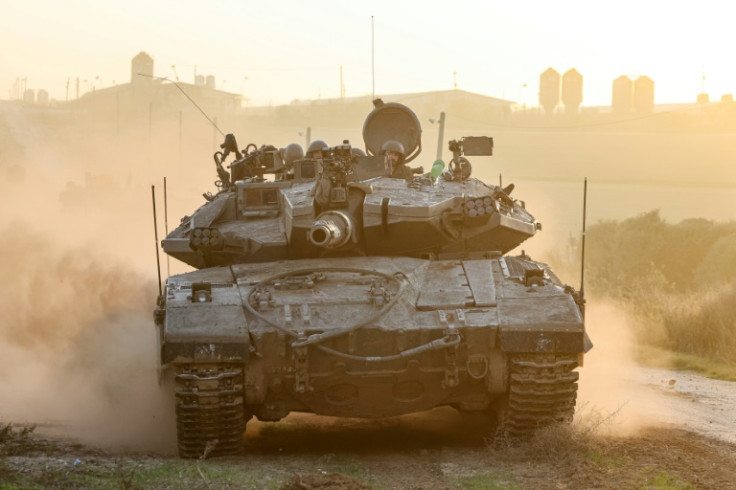
Israel has moved ground forces into the south of Gaza in its war on Hamas, witnesses said Monday, despite global concern over mounting civilian deaths and fears the conflict will spread elsewhere in the Middle East.
Dozens of Israeli tanks as well as armoured personnel carriers and bulldozers entered the south of the territory near the city of Khan Yunis, which is crowded with internally displaced Palestinians, witnesses told AFP.
Amin Abu Hawli, 59, said the Israeli vehicles were "two kilometres (1.2 miles) inside" Gaza in the village of al-Qarara, while Moaz Mohammed, 34, said Israeli tanks were rolling down the strip's main north-south highway, the Salah al-Din road.
Weeks after Israel sent ground forces and tanks into northern Gaza, the army has been air-dropping leaflets in the besieged territory's south, especially around Khan Yunis, telling Palestinians there to flee to other areas.
The army "continues to expand its ground operation against main Hamas fronts in the Gaza Strip," Israeli Defense Forces spokesman Daniel Hagari said Sunday. "Wherever there is a Hamas stronghold, the IDF operates."
Full-scale fighting resumed Friday after the collapse of a week-long truce brokered by Qatar, the United States and Egypt, during which Israel and Hamas had exchanged scores of hostages and prisoners.
Air strikes have since intensified in Gaza's south, said James Elder, a spokesman for the United Nations children's agency UNICEF.
"Despite what has been assured, attacks in the south of Gaza are every bit as vicious as what the north endured," he posted Monday on X, formerly Twitter.
"Somehow, it's getting worse for children and mothers."
Israel has vowed to crush Hamas in retaliation for the Islamist militant group's October 7 attacks that killed about 1,200 people, mostly civilians, and saw 240 hostages taken, according to Israeli authorities.
Israel's military said Sunday it had carried out around 10,000 air strikes in total, while Gaza militants had resumed rocket salvos into Israel, most of which had been intercepted.
The Hamas-run health ministry says more than 15,500 people have been killed in Gaza, about 70 percent of them women and children -- a death toll that has sparked global alarm and mass demonstrations.
"There is no safe place in Gaza," UN High Commissioner for Human Rights Volker Turk said as a UN agency estimated around 1.8 million people in Gaza, roughly 75 percent of the population, had been displaced.
The Israeli army said Monday three more soldiers had been killed in fighting in the northern Gaza Strip, raising the number of troop deaths there to 75.
The fatalities brought the number of Israeli defence personnel killed since October 7 -- among them those killed in the Hamas attacks themselves and including soldiers, reservists, kibbutz guards and others -- to 401.
Under the temporary truce that expired Friday, 80 Israeli hostages were freed, in exchange for the release of 240 Palestinians held in Israeli jails. More than two dozen Thai and other captives were also released from Gaza.
More air strikes have rained down on northern Gaza where the Hamas-run government and the official Palestinian news agency Wafa said the entrance of the Kamal Adwan hospital was hit late Sunday.
Several people were killed in the strike, Wafa said, while Hamas accused Israel on Telegram of a "grave violation" of humanitarian law. Contacted by AFP, the Israeli military did not immediately comment.
Israel says Hamas uses hospitals and other civilian infrastructure for military purposes, an accusation the militant group denies.
Nine-year-old Huda, who was wounded in the head, arrived at the Deir al-Balah hospital with a Red Cross convoy bringing casualties from northern Gaza.
"She doesn't answer me any more," said her bereaved father Abdelkarim Abu Warda.
Israel's ally the United States has intensified calls for the protection of Gaza's civilians, with Vice President Kamala Harris saying that "too many innocent Palestinians have been killed".
A White House official said Sunday the United States believes Israel is "making an effort" to minimise civilian casualties in Gaza.
Israeli government spokesman Eylon Levy said those killed "would still be alive" had Hamas not carried out the October 7 attacks.
Israel said Monday it was not seeking to force Palestinian civilians to permanently leave their homes, even as it acknowledged conditions in Gaza were "tough".
Any suggestion of Palestinian dispersal is highly contentious in the Arab world as the war that led to Israel's creation 75 years ago gave rise to the exodus or forced displacement of 760,000 Palestinians.
Israeli military spokesman Jonathan Conricus said Monday: "We are not trying to displace anyone, we are not trying to move anybody from anywhere permanently.
"We have asked civilians to evacuate the battlefield and we have provided a designated humanitarian zone inside the Gaza Strip," he said, referring to a tiny coastal area of the territory named Al-Mawasi.
With fears of a wider regional conflagration rising, a US destroyer shot down multiple drones over the Red Sea while assisting commercial ships on Sunday, according to the US Central Command.
Yemen's Iran-backed Huthi rebels -- who said they targeted two of the ships -- launched a series of drones and missiles towards Israel in recent weeks and seized a cargo vessel last month.
In Iraq, an air attack killed at least five pro-Iranian militants on Sunday, according to Iraqi security sources, a day after Baghdad warned Washington against "attacks" on its territory.
Fighting also flared on Israel's northern border with Lebanon.
The Israeli army said it had launched artillery strikes in response to cross-border fire, and its fighter jets hit targets linked to Iran-backed Lebanese militant group Hezbollah.
The Israel-occupied West Bank has also seen a surge in violence since October.
The Palestinian Authority's health ministry said two Palestinians had been shot dead in an Israeli raid on the northern West Bank town of Qalqilya, adding that Israeli forces kept the two bodies.
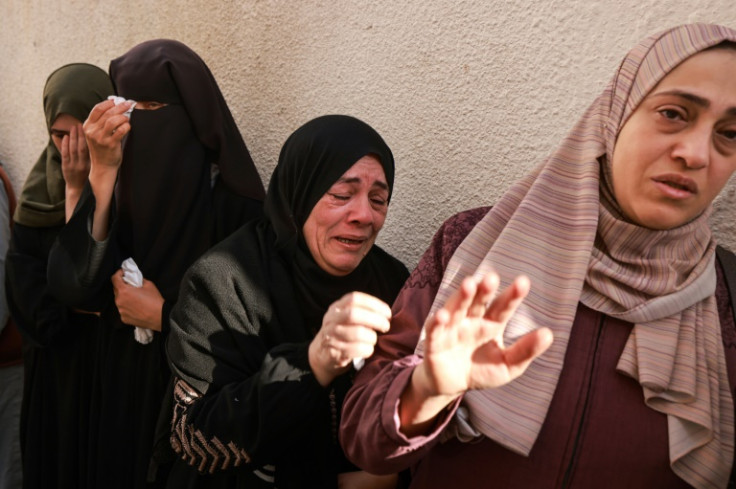
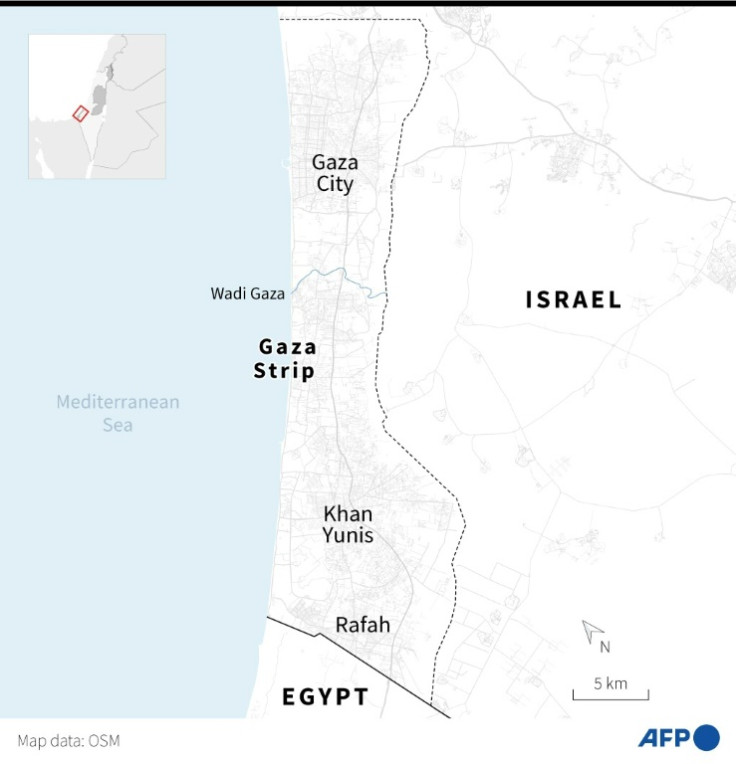
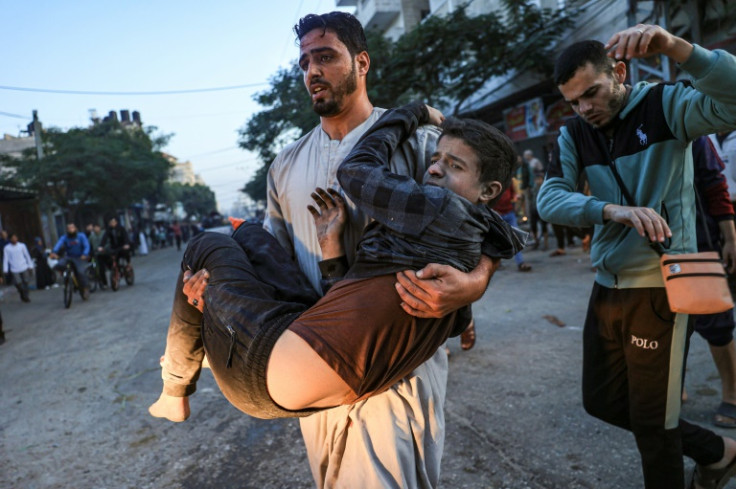
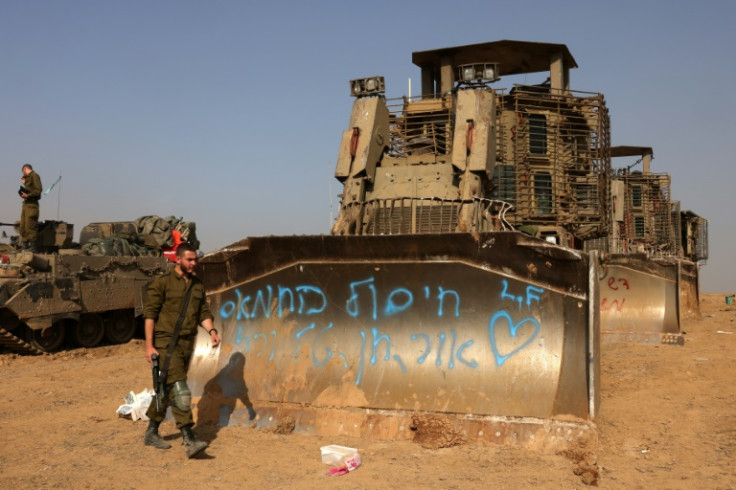
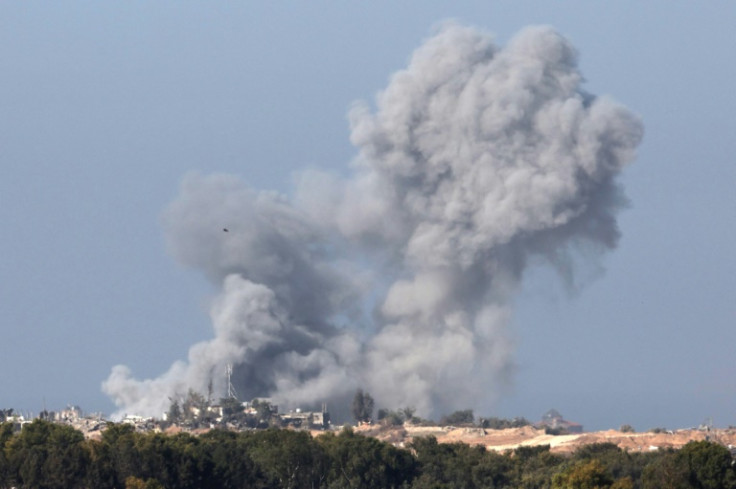
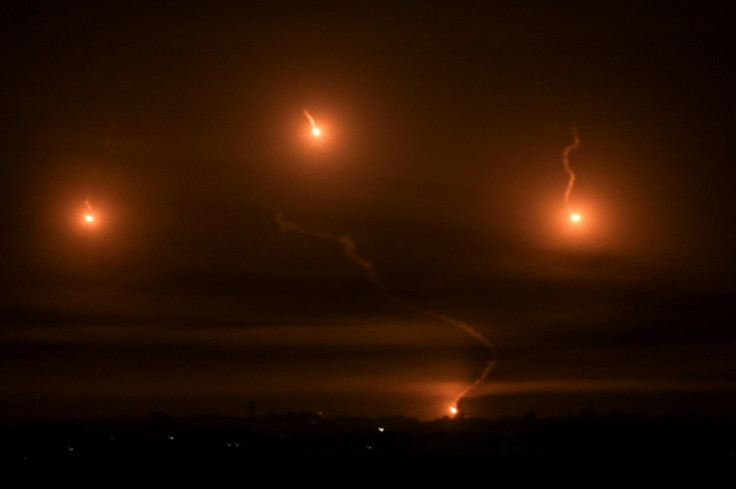
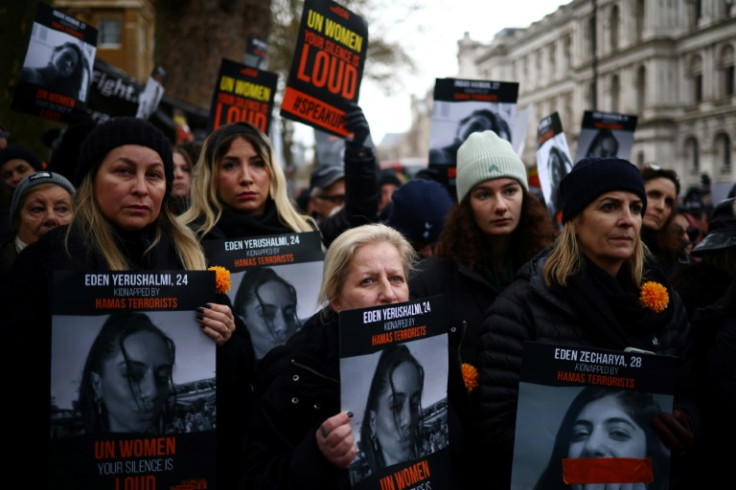
© Copyright AFP 2024. All rights reserved.





















